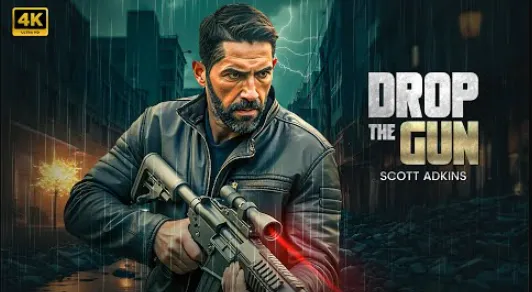Peninsula (2020) – Detailed Overview
Peninsula is a South Korean post-apocalyptic action-horror film released in 2020, directed by Yeon Sang-ho. It serves as a standalone sequel to the critically acclaimed Train to Busan (2016). While Train to Busan focused on survival during the early stages of a zombie outbreak, Peninsula takes place four years later, in a devastated and isolated Korean peninsula overrun by the infected.
Unlike its predecessor’s confined, emotional survival narrative, Peninsula expands into a broader action-packed, dystopian thriller, combining elements of zombie horror, heist film, and car-chase mayhem.
Plot Summary
Four years after the zombie outbreak that led to the fall of South Korea, the entire Korean peninsula has been quarantined by the rest of the world. Survivors who escaped now live in exile, including Jung-seok (played by Gang Dong-won), a former soldier haunted by guilt over failing to save his sister and nephew during the outbreak.
Living in Hong Kong in hardship and discrimination, Jung-seok is offered a chance to escape his miserable life: he and a small crew are recruited to return to the zombie-infested peninsula and retrieve a truck filled with $20 million in cash abandoned in Seoul.
Jung-seok and his team return via boat under cover of night, but the mission quickly goes wrong. They are ambushed by a rogue human militia group known as Unit 631, a brutal and lawless faction that uses survivors for cruel games and hoards supplies. Jung-seok is separated from his team but is rescued by two young girls—Jooni and Yu-jin, daughters of Min-jung, a fierce survivor who leads a small family of survivors.
Jung-seok joins forces with Min-jung to escape the peninsula, facing off against hordes of the undead and the violent Unit 631. In the end, Jung-seok must confront his past, rediscover his humanity, and fight to help the few innocent people left find a way out.
Main Characters
-
Jung-seok (Gang Dong-won) – A former soldier, hardened and emotionally distant, seeking redemption for past failures.
-
Min-jung (Lee Jung-hyun) – A strong, resilient mother who has kept her children alive in the ruins of the peninsula.
-
Sergeant Hwang and Captain Seo (Kim Min-jae & Koo Kyo-hwan) – Ruthless leaders of Unit 631, exploiting chaos for personal power.
-
Jooni and Yu-jin – Min-jung’s brave daughters, surprisingly skilled at surviving the zombie apocalypse.
-
Chul-min – Jung-seok’s brother-in-law and fellow survivor, also part of the heist team.
Themes
-
Survival vs. Humanity – The film explores how trauma and isolation affect people differently—some become monsters, while others cling to hope.
-
Guilt and Redemption – Jung-seok’s emotional arc centers around making amends for past cowardice and indifference.
-
Family and Connection – In contrast to the militarized, lawless environment, the familial bond between Min-jung and her daughters represents hope.
-
Society’s Collapse – The peninsula is a metaphor for lawless zones where civilization has broken down, and moral lines are blurred.
Style and Cinematic Elements
-
Peninsula is visually grander than Train to Busan, featuring large-scale action, CGI-heavy car chases, and explosive set pieces.
-
The film was inspired by Western post-apocalyptic action films, particularly Mad Max, Escape from New York, and 28 Days Later.
-
While it lacks the intimate tension of its predecessor, it compensates with intense sequences and a broader, dystopian world-building approach.
Reception
-
Peninsula received mixed to positive reviews. It was praised for its ambition, action, and visual effects, but some critics noted it lacked the emotional depth and character intimacy of Train to Busan.
-
Despite the COVID-19 pandemic, it performed well at the box office, especially in Asian markets.
-
It was screened at the 2020 Cannes Film Festival as part of the official selection.
Conclusion
Peninsula is a bold, action-heavy continuation of the Train to Busan universe, exploring the aftermath of a zombie apocalypse through the lens of human greed, redemption, and survival. While it diverges in tone and style from its predecessor, it stands on its own as a visually dynamic zombie thriller that expands the scope of Korea’s zombie lore.


-1750840085-q80.webp)
-1753082573-q80.webp)